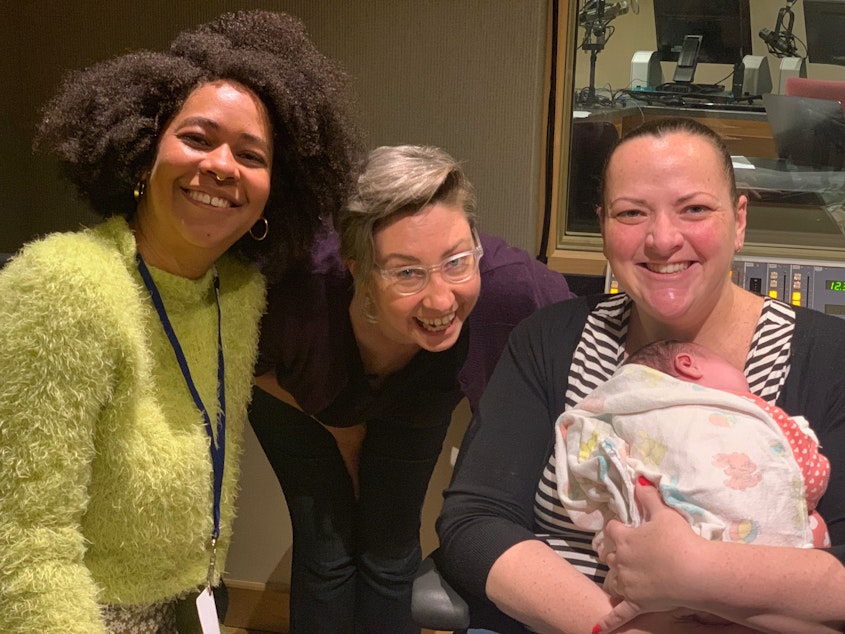Don't give advice to other women in the workplace. Here's what to do instead

This week on the podcast, we focus on a potentially thorny question: How can women be better allies to other women in the workplace?
First, a confession: Both of us remember times when we thought we were being good allies to other women, but we were actually doing more harm than good.
So this week we asked Leslie Feinzaig how to be better allies. Feinzaig is CEO of the Female Founders Alliance, a community that supports women and non-binary business founders.
Feinzaig said that, first of all, we have to operate from “a place of plenty rather than scarcity.”
In our relationships with women and other under-represented groups, she said, “When you think, ‘There’s room for all of us,’ you will automatically be a better ally because you won’t be worried about taking away from yourself in order to give to others.”
Our conversation with her gave us so much more clarity about how to be a good ally. In fact, it has already started to change how we interact with our co-workers — including each other.
Sponsored
Here are a few key takeaways.
Actions, not advice
It can be easy to equate allyship with giving someone advice about how to succeed in the workplace.
“Women are walking targets for unsolicited advice,” Feinzaig said.
Sponsored
But advice is not the same as allyship. In fact, advice can sometimes function in the opposite way, reinforcing sexist ideas about how women should behave rather than challenging them.
So how do we stop policing women and start promoting them?
“At all stages in a woman’s career, what really makes a difference is action,” she said. “If you want to be a better ally, stop opining and start referring. Start sponsoring.
“True allyship is when you actively open doors for other women, when you actively promote them, invest in them, introduce them. Do they need a promotion or do they need a new project or do they need an investor or do they need some media exposure?”
“You can give me all of the advice in the world,” Feinzaig said, “but what really matters is how you get me on KUOW. Or that you introduce me to that investor. That is what really advances our careers.”
Sponsored
Measure your impact
Action > advice, noted. But how do you know if you’re making an impact?
“In my case, I actually just measure it,” Feinzaig said. “You can’t change what you don’t measure, and so we track the things that we care about as best we can, and that’s how we know that we have impact.”
One of the ways that we can measure our impact is following up on the actions that we have taken and asking people for feedback.
Feinzaig said that listening to advice about how to be a better ally helped her to improve her company.
Sponsored
When she started the Female Founder’s Alliance, she didn’t think about how the word “female” referred to biology rather than gender and how that could exclude some people.
But Feinzaig's new vice president of operations proposed a shift to more inclusive language, and they decided to rewrite the company's mission statement. The Alliance now focuses on companies founded by women and non-binary individuals. That change in language has made a huge difference to potential members who now see themselves reflected in her company's mission.
So Feinzaig believes that it’s important to find a balance between listening to feedback about how to be a better ally and knowing when to say “no.”
“It’s also important to set limits," she said. "You really have to have a strong sense of who you are, and where you add the most value.”
Be your own ally
Sponsored
Feinzaig reminded us to promote ourselves in the same way that we would promote others. After all, the more you succeed, the more often you’ll be in a position to help lift others up, too.
“We have to ask for the things that we need,” she said. ”Don’t we all forget that too often?”
//
Many of you asked if we were going to talk about how to deal with toxic work relationships with other women on this week's episode. We don’t explore that subject here, but we did make it a topic for one of our bonus mailbag episodes.
If you make a one-time contribution to the BTSW podcast and our home station, KUOW, you’ll get access to that episode and all our other bonus episodes.



